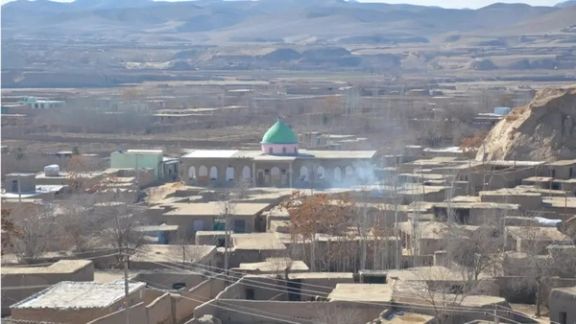The aide, Abdullah Azzam, claimed Baradar warned Hameed that Taliban fighters would respond to Pakistani military actions “in the language of bullets” during a discussion in Qatar over the Durand Line dispute.
In a post on X, Abdullah Azzam, chief of staff to Mullah Baradar, said the meeting took place on June 3, 2021, in Qatar, during discussions on intra-Afghan negotiations. According to Azzam, then–ISI Director-General Faiz Hameed asked Baradar to stop Taliban fighters from firing at Pakistani troops and from obstructing the construction of barbed-wire fencing along the Durand Line.
Azzam quoted Baradar as responding, “I’m responsible for political affairs, why are you talking to me? What you’re saying concerns the military commanders, and they respond in their own language (meaning gunfire).”
Azzam said he attended the meeting as an interpreter and claimed the conversation occurred at Hameed’s request. He added that Hameed told Baradar Pakistani forces had nearly completed fencing along the Durand Line but that Taliban fighters in Bahramcha were resisting the effort. “About 500 Mujahideen have gathered, firing at our forces and preventing the work,” Hameed reportedly said.
Faiz Hameed, who served as ISI chief from 2019 to 2021, became internationally known after the Taliban takeover of Kabul in August 2021, when he was photographed drinking tea with Taliban officials at Kabul’s Serena Hotel. He is now facing charges in Pakistan over political interference, violations of national security laws, and misuse of state resources.
No previous reports from 2021 mentioned a meeting between Hameed and Baradar about the Durand Line, and the former ISI chief has not commented on Azzam’s claims.
Azzam’s account comes amid renewed debate over the Taliban’s stance on the Durand Line, the disputed border between Afghanistan and Pakistan. The controversy resurfaced after Qatar’s Foreign Ministry referred to it as a “border” in a statement about the recent Taliban–Pakistan ceasefire, contradicting the Taliban, who call it an “imaginary line.” Qatar later removed the term from its statement.
Azzam concluded that before regaining power, “the Taliban, while at war with 45 countries, were willing to fight another nation over a single strand of barbed wire, let alone recognise the Durand Line.” He also shared a photo allegedly showing the 2021 meeting, appearing to depict Faiz Hameed praying behind Mullah Baradar in Qatar.






